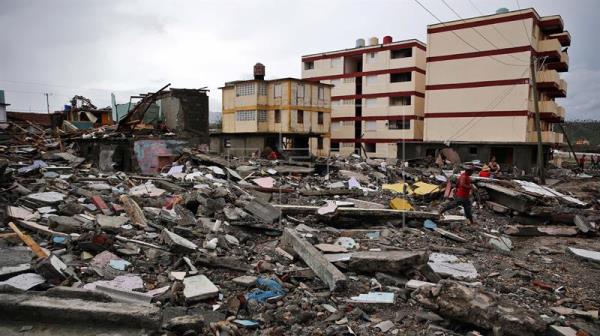It became clear on Sept. 28 that a tropical wave from the African coast was to become a major threat to the Caribbean and–eventually–the United States. As the storm greatly intensified and traveled westward in the Atlantic, it was given its name: Hurricane Matthew.
The first landfall that Matthew made was in Haiti on Oct. 4, reaching Category 4 strength. Being an impoverished country, many Haitians were without warning and no place to which they could evacuate.
Paul Clark, a Johnson City local who lives and works at an orphanage in Port Au Prince, Haiti, posted on Facebook on Oct. 3, “Tomorrow is the day. We at the orphanage are prepared but many we know aren’t.”
The southern portion of the island experienced the hardest hit. The death toll in Haiti rose to 1,000, and that number only continues to increase as starvation and cholera outbreaks threaten so many lives. Lives are still at stake long after the storm passes.
Matthew continued along its path through Cuba and the Bahamas and then eventually made another landfall in the southeastern United States on Oct. 7. The coasts of Florida, Georgia, South Carolina and North Carolina were given mandatory evacuation notices. The total death toll for the states reached 27.
President Greer sent a campus-wide email on Oct. 7 stating: “Among the millions of people affected, we have a number of students whose families have been in the path of this storm and I know they are worried and concerned.”
Hurricane Matthew affected many students’ fall break plans who live on the east coast; however, junior Bailey Backus from Titusville, Florida, decided to travel home anyway.
“We just had trees and fences down, but my neighbors have trees through their roofs,” said Backus.
While the southeastern coast of the U.S. works toward getting back to normal – regaining power, rebuilding damaged homes and waiting for the flood waters to recede – the people of Southern Haiti and the Caribbean region are struggling to survive and will require the most attention.

